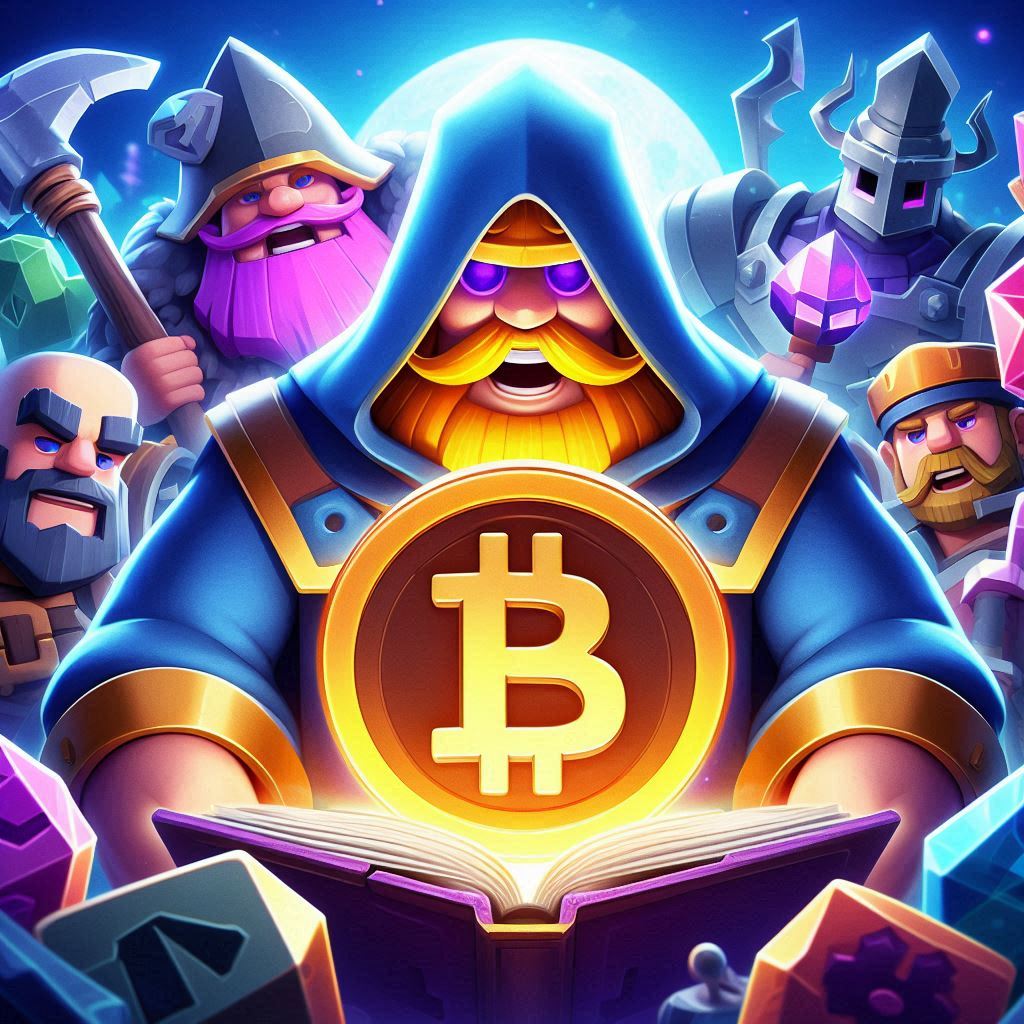RPC
In the ever-evolving world of cryptocurrency, the concept of Remote Procedure Call (RPC) has become increasingly crucial for the smooth functioning and interoperability of blockchain networks. RPC is a fundamental technology that enables seamless communication and data exchange between different components within a distributed system, making it an integral part of the cryptocurrency ecosystem.
At its core, RPC in cryptocurrency refers to the process by which a client (such as a cryptocurrency wallet or dApp) can initiate a request and receive a response from a remote server (typically a node or a full-service provider) over a network connection. This interaction allows clients to access and manipulate data on the blockchain, initiate transactions, and perform various other operations without the need to run a full node themselves.
One of the primary benefits of RPC in cryptocurrency is its ability to enhance the user experience and accessibility of blockchain-based applications. By offloading the computational and storage-intensive tasks to remote servers, RPC enables lightweight clients to interact with the blockchain, making it more convenient for users to manage their digital assets and participate in the crypto ecosystem.
Furthermore, RPC plays a crucial role in facilitating cross-chain interoperability, a key aspect of the evolving multi-chain landscape. By establishing standardized RPC interfaces, different blockchain networks can communicate and exchange data with one another, enabling the development of cross-chain applications and the seamless transfer of assets between chains.

In the context of cryptocurrency, RPC endpoints are typically hosted by node operators, such as blockchain service providers, infrastructure companies, and even individual validators. These RPC endpoints serve as the interface between clients and the underlying blockchain network, allowing users to interact with the chain through a variety of API calls and commands.
One of the most widely adopted RPC standards in the cryptocurrency industry is the Ethereum JSON-RPC API, which defines a set of methods and conventions for interacting with the Ethereum blockchain. This standardized approach has paved the way for the development of robust and interoperable Ethereum-based applications, as well as the integration of Ethereum functionality into a wide range of external systems and services.
Beyond Ethereum, other blockchain networks have also introduced their own RPC protocols and endpoints, each tailored to the specific requirements and features of their respective chains. For example, the Bitcoin Core client provides a comprehensive RPC interface for managing Bitcoin-related operations, while emerging layer-1 and layer-2 protocols have developed their own RPC specifications to enable seamless integration and interaction with their respective ecosystems.
As the cryptocurrency industry continues to mature, the importance of RPC standards and best practices has become increasingly apparent. Cryptocurrency projects and service providers are actively collaborating to define and promote standardized RPC interfaces, ensuring a more cohesive and interoperable crypto landscape that can better serve the needs of developers, users, and the broader ecosystem.
One such initiative is the development of the Ethereum RPC API specification, which aims to provide a comprehensive and well-documented set of guidelines for building RPC-compatible applications on the Ethereum network. This effort not only enhances the interoperability of Ethereum-based projects but also contributes to the overall stability and reliability of the Ethereum ecosystem.
Similarly, the Interchain Standards (ICS) framework, developed by the Interchain Foundation, offers a set of guidelines and recommendations for implementing RPC-based communication across different blockchain networks. By promoting a standardized approach to RPC, the ICS framework helps to facilitate cross-chain interoperability and enables the development of more robust and interconnected decentralized applications.
In addition to standardization efforts, the cryptocurrency industry has also witnessed the emergence of specialized RPC service providers, such as Infura, Alchemy, and Moralis, which offer scalable and highly reliable RPC infrastructure to developers and end-users. These services abstract away the complexities of running and maintaining blockchain nodes, allowing clients to focus on building innovative applications without the overhead of managing their own RPC infrastructure.
As the demand for seamless and user-friendly blockchain interactions continues to grow, the role of RPC in cryptocurrency is expected to become even more critical. The continued development and adoption of standardized RPC protocols, coupled with the increasing availability of robust RPC service providers, will play a pivotal role in driving the widespread adoption and integration of cryptocurrency technologies across a diverse range of industries and applications.
Moreover, the integration of RPC capabilities within hardware wallets, mobile applications, and desktop clients is also gaining traction, empowering users with more direct and secure access to blockchain networks. This trend further enhances the accessibility and user-friendliness of cryptocurrency solutions, ultimately contributing to the overall growth and mainstream adoption of the crypto ecosystem.
In the realm of decentralized finance (DeFi), RPC has become an essential component, enabling seamless interactions between various DeFi protocols, liquidity pools, and other DeFi-related services. The ability to leverage standardized RPC interfaces has paved the way for the development of more complex and interconnected DeFi applications, fostering innovation and expanding the capabilities of the DeFi ecosystem.

As the cryptocurrency industry continues to evolve, the role of RPC will only become more crucial in ensuring the scalability, interoperability, and user-centricity of blockchain-based solutions. By prioritizing the development and adoption of standardized RPC protocols, the crypto community can further enhance the accessibility, usability, and overall user experience of decentralized technologies, ultimately driving mainstream adoption and revolutionizing the way we interact with and transact in the digital economy.
One of the key advantages of RPC in cryptocurrency is its ability to enhance the scalability and performance of blockchain networks. By offloading the processing of complex operations and data retrieval to remote RPC servers, clients can avoid the need to run a full node, which can be computationally and resource-intensive. This, in turn, allows for the development of lightweight, high-performance applications that can interact with the blockchain without the burden of maintaining a full node infrastructure.
RPC also plays a crucial role in facilitating the integration of blockchain technology with traditional software systems and enterprise applications. By providing standardized RPC interfaces, blockchain networks can seamlessly integrate with existing business workflows, enterprise resource planning (ERP) systems, and other third-party applications. This integration enables the seamless exchange of data and the incorporation of cryptocurrency-based functionality into a wide range of existing software ecosystems.
Another important aspect of RPC in cryptocurrency is its potential to improve the security and privacy of blockchain interactions. By leveraging secure RPC protocols, such as HTTPS or WebSocket, clients can establish secure communication channels with remote RPC servers, reducing the risk of data breaches and unauthorized access. Additionally, some RPC providers offer advanced security features, like API key management, rate limiting, and IP whitelisting, further enhancing the overall security posture of the system.
The rise of decentralized applications (dApps) has also highlighted the importance of RPC in the cryptocurrency space. dApps, which are built on top of blockchain networks, rely heavily on RPC interfaces to interact with the underlying blockchain, retrieve data, and execute smart contract-based functions. By providing robust and reliable RPC endpoints, blockchain networks can support the development and deployment of a wide range of dApps, driving innovation and expanding the capabilities of the decentralized ecosystem.
In the context of cryptocurrency trading and asset management, RPC has become essential for the development of sophisticated trading strategies, portfolio management tools, and automated market-making solutions. RPC endpoints allow these applications to retrieve real-time market data, execute trades, and monitor the state of the blockchain, enabling traders and investors to make informed decisions and optimize their investment strategies.
Looking to the future, the role of RPC in cryptocurrency is expected to evolve further, with the potential for more advanced features and capabilities. For example, the integration of RPC with decentralized identity (DID) and self-sovereign identity (SSI) protocols could enhance the authentication and authorization mechanisms for blockchain interactions, improving the overall security and user control over their digital assets.
Furthermore, the emergence of cross-chain RPC bridges, which enable seamless communication and data exchange between different blockchain networks, could greatly expand the interoperability and functionality of the cryptocurrency ecosystem. By allowing users to access and interact with multiple blockchains through a unified RPC interface, these bridges can facilitate the development of truly interoperable decentralized applications that can leverage the unique capabilities of various blockchain networks.
As the cryptocurrency industry continues to mature and evolve, the importance of RPC will only continue to grow. By providing a standardized and reliable interface for interacting with blockchain networks, RPC will play a crucial role in driving the widespread adoption and integration of cryptocurrency technologies across a diverse range of industries and applications, ultimately shaping the future of the decentralized digital economy.
In conclusion, RPC is a fundamental technology that has become increasingly integral to the cryptocurrency ecosystem, facilitating seamless communication, data exchange, and interoperability between various components of the decentralized finance landscape. As the industry continues to evolve, the continued advancement and adoption of standardized RPC protocols will be crucial in shaping the future of cryptocurrency and driving its widespread integration across a diverse range of applications and industries.

Our game development Team has developed a 3D online Android game based on blockchain technology. Players can Earn Money by competing with each other through the game. Visit our YouTube channel for more information. Also Click to download our TanKash game.



